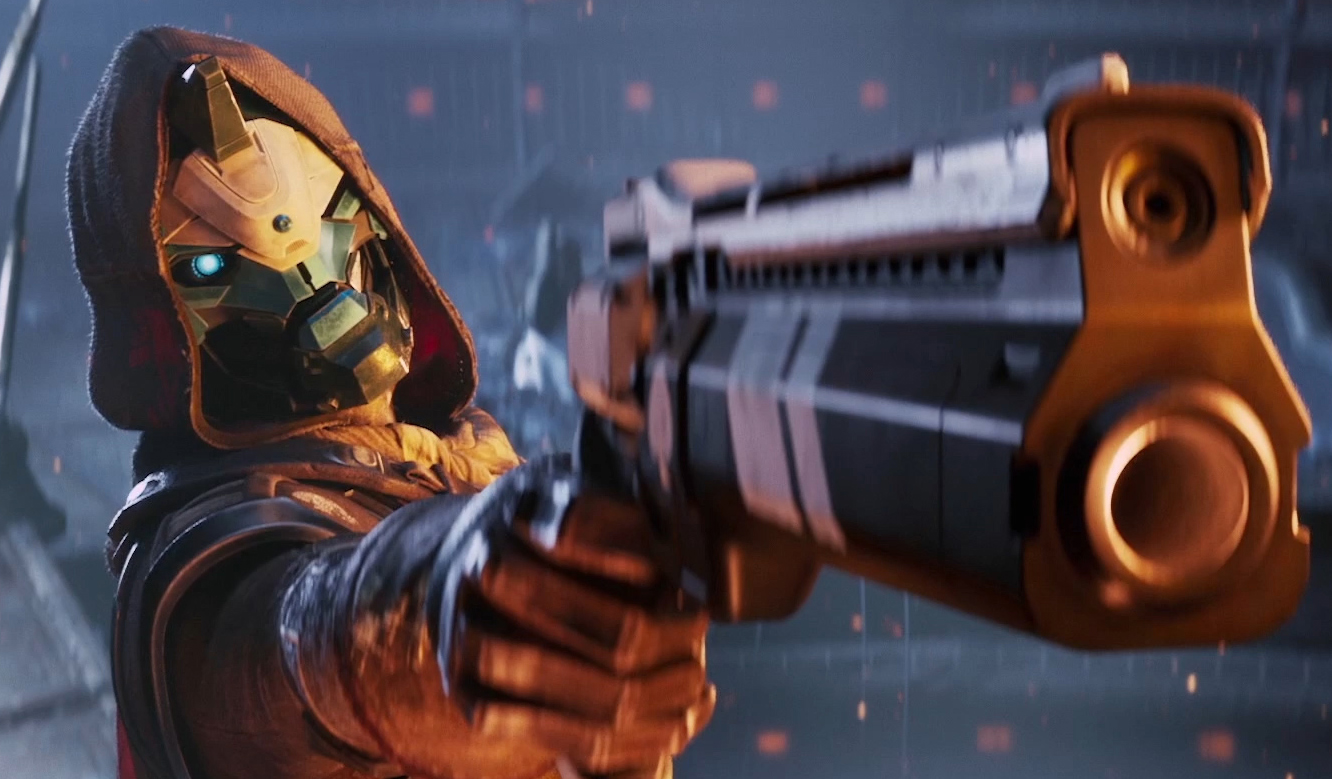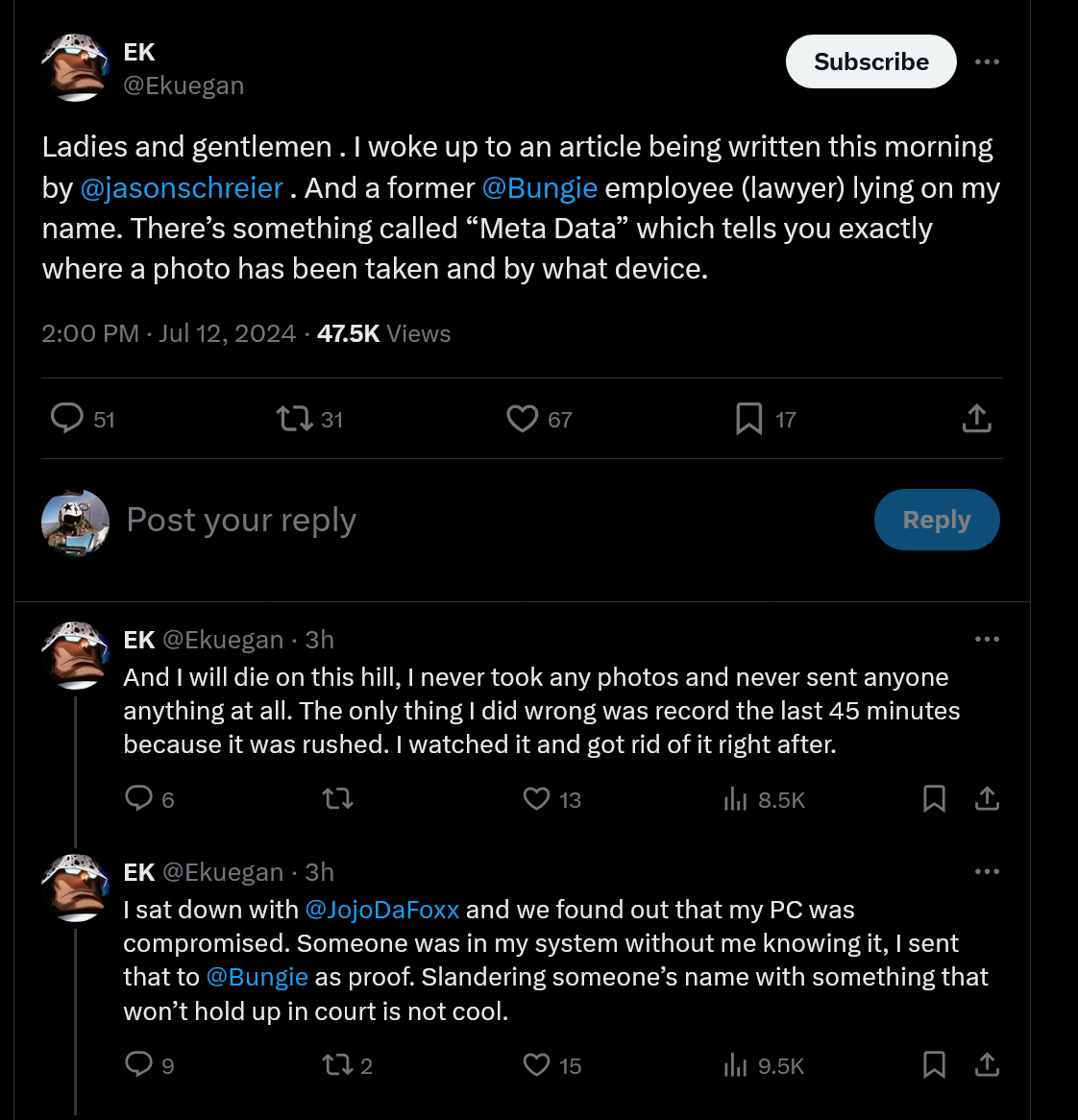Former Bungie lead counsel explains how the studio nailed one of Destiny 2's most infamous leakers
Don McGowan didn't name names, but the steamer in question quickly took credit by denying his involvement.

If you've ever wondered how videogame studios determine who's leaking their big secrets, a new Bloomberg interview with former Bungie general counsel Don McGowan offers some very interesting insights into how it's done.
"We had a situation with a content creator," McGowan said. "We'd done a community day where we'd brought in a bunch of community content creators and opened up a stream. One of them took photos of his computer and released those, for clout. Not on his own name, just leaked them out, so he could get clout with the websites he was leaking them to."
McGowan explained that there were 12 streamers on the call that was leaked, so Bungie started taking a closer look at all of them. "One of them had two computers, and one day he streamed from his other PC," he said. "We saw the icons on the bottom of his screen were exactly the same ones as in one of the photographs. Alright, that's our guy. So we set up a call with him."
The streamer in question denied being responsible for the leak, and said his roommate must have surreptitiously taken a photo of his screen. Bungie rejected that claim for two reasons, according to McGowan: "One, we don't care. Secondly, and more important my friend, no it wasn't.
"Because if you look at the angle of the camera, you can tell the camera was being held in the photographer's right hand. We can see the room you're in right now. Your door is to your left. So either your roommate came in, walked behind you to your right and took a photograph, and you didn't notice it—or you took the photograph yourself."
McGowan didn't name the streamer in question but shortly after the interview was published, Twitch streamer Ekuegan effectively confirmed that he was the leaker being referred to. Ekuegan was banned from Destiny 2 in 2023 as a result of what Bungie called "irrefutable evidence" that he was responsible for multiple Community Summit leaks; Ekuegan resolutely denied his guilt then, and he continued to do so in messages posted today.
"I will die on this hill, I never took any photos and never sent anyone anything at all," Ekuegan tweeted. "The only thing I did wrong was record the last 45 minutes because it was rushed. I watched it and got rid of it right after.
The biggest gaming news, reviews and hardware deals
Keep up to date with the most important stories and the best deals, as picked by the PC Gamer team.
"I sat down with @JojoDaFoxx and we found out that my PC was compromised. Someone was in my system without me knowing it, I sent that to @Bungie as proof. Slandering someone's name with something that won't hold up in court is not cool."

McGowan said his approach to handling leakers varies depending on the nature of the leaks. In cases where someone leaks a story about sexual misconduct at a studio, for instance, he said he'd try to track down the source "to find out if what they're saying is true" and who's responsible for the abusive conduct.
He also related a story about his time at the Pokémon Company, during which a kid figured out how to extract images from a Pokémon card game and started sharing them.
"So I called his mom and said, 'Listen, I wanted to tell you some things that Andrew is doing on the computer'," McGowan said. "She says, 'So you're saying he hacked your game.' And I hear in the background: 'I didn't hack anything!' I start describing it more technically. She says, 'Is this a problem?' I say, 'Hacking software, that's a federal crime, but I don't want that to be the conversation. Why don't we make it a conversation about the good and bad things he can do with a computer?'"
It's a fun interview, but it also offers an interesting behind-the-scenes look at how big companies enforce their will—and a reminder that no matter how careful you are, you might not be covering your tracks quite as well as you think you are. Read the whole thing at Bloomberg.

Andy has been gaming on PCs from the very beginning, starting as a youngster with text adventures and primitive action games on a cassette-based TRS80. From there he graduated to the glory days of Sierra Online adventures and Microprose sims, ran a local BBS, learned how to build PCs, and developed a longstanding love of RPGs, immersive sims, and shooters. He began writing videogame news in 2007 for The Escapist and somehow managed to avoid getting fired until 2014, when he joined the storied ranks of PC Gamer. He covers all aspects of the industry, from new game announcements and patch notes to legal disputes, Twitch beefs, esports, and Henry Cavill. Lots of Henry Cavill.

